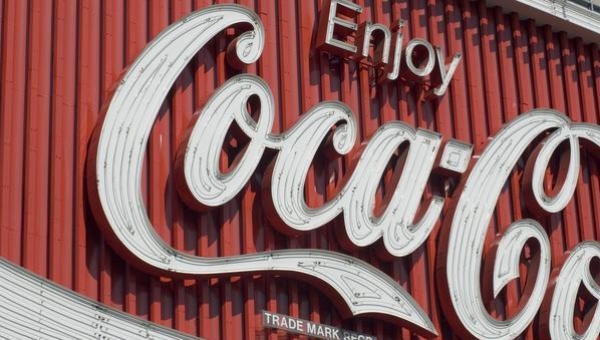Coca-Cola Slowly Deprives 30,000 People of Water in El Salvador
LATIN AMERICA AND THE CARIBBEAN, 15 Jun 2015
TeleSur – TRANSCEND Media Service
The main and only source of water for thousands of Salvadorans is in peril.
10 Jun 2015 – Residents from a Salvadoran municipality have seen a gradual depletion and contamination of their main and only water source since multinational corporations like Coca-Cola started operations there, activists have denounced.
The municipality of Nejapa, in northern El Salvador, is home to almost 30,000 thousand people who depend on its river San Antonio to satisfy daily activities from hydration and bathing to washing clothes and cattle farming.
Residents complain that since multinational corporations Coca-Cola, Jumex and Agua Cristal have been using industrial wells to exploit and rob most of the water source, there has been a significant decrease in water supply.
“”It is regrettable that in a municipality rich in water there are still entire communities that lack this vital liquid,” said Roxana Brizuela, a health advocate and Nejapa resident.
Brizuela explained that 10 years ago people enjoyed full access to water, which Nejapa natives are now unable to drink because of industrial contamination. Local residents say the water kills their animals and sickens their stomachs.
The impact of the Nejapa’s water exploitation has led many local communities to support a pending law called the Water Act that could protect this vital resource.
“This way companies wouldn’t come and take our water without anyone saying anything, because they are only interested in selling water,” affirmed Brizuela. “They don’t care about the people who really need it.”
According to Carlos Flores, from the Water Forum, right-wing politicians are opposing the law because it is not in their interest.
“That would mean that what’s happening here won’t happen again because there will be someone who thinks about the water … and will prevent things like these to happen,” he said.
Go to Original – telesurtv.net
DISCLAIMER: The statements, views and opinions expressed in pieces republished here are solely those of the authors and do not necessarily represent those of TMS. In accordance with title 17 U.S.C. section 107, this material is distributed without profit to those who have expressed a prior interest in receiving the included information for research and educational purposes. TMS has no affiliation whatsoever with the originator of this article nor is TMS endorsed or sponsored by the originator. “GO TO ORIGINAL” links are provided as a convenience to our readers and allow for verification of authenticity. However, as originating pages are often updated by their originating host sites, the versions posted may not match the versions our readers view when clicking the “GO TO ORIGINAL” links. This site contains copyrighted material the use of which has not always been specifically authorized by the copyright owner. We are making such material available in our efforts to advance understanding of environmental, political, human rights, economic, democracy, scientific, and social justice issues, etc. We believe this constitutes a ‘fair use’ of any such copyrighted material as provided for in section 107 of the US Copyright Law. In accordance with Title 17 U.S.C. Section 107, the material on this site is distributed without profit to those who have expressed a prior interest in receiving the included information for research and educational purposes. For more information go to: http://www.law.cornell.edu/uscode/17/107.shtml. If you wish to use copyrighted material from this site for purposes of your own that go beyond ‘fair use’, you must obtain permission from the copyright owner.
Read more
Click here to go to the current weekly digest or pick another article:
LATIN AMERICA AND THE CARIBBEAN:
